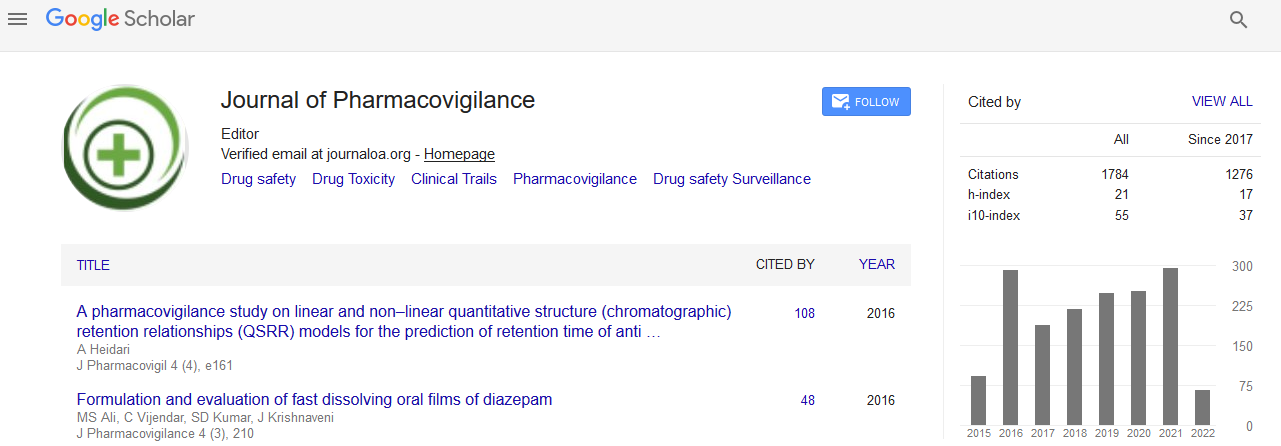Indexed In
- Open J Gate
- JournalTOCs
- The Global Impact Factor (GIF)
- RefSeek
- Hamdard University
- EBSCO A-Z
- OCLC- WorldCat
- Publons
- Euro Pub
- Google Scholar
Useful Links
Share This Page
Journal Flyer

Open Access Journals
- Agri and Aquaculture
- Biochemistry
- Bioinformatics & Systems Biology
- Business & Management
- Chemistry
- Clinical Sciences
- Engineering
- Food & Nutrition
- General Science
- Genetics & Molecular Biology
- Immunology & Microbiology
- Medical Sciences
- Neuroscience & Psychology
- Nursing & Health Care
- Pharmaceutical Sciences
Limited value of relative risk reductions for assessing the benefits of disease-modifying therapies for multiple sclerosis
Conference Series LLC Joint International Event on 7th Pharmacovigilance & Pharmaceutical Industry
August 22-24, 2016 Vienna, Austria
Magd Zakaria
Ain Shams University, Egypt
Scientific Tracks Abstracts: J Pharmacovigil
Abstract:
The relative risk reduction (RRR) is the main statistical parameter used to express the different primary outcomes of the clinical drug trials. Physicians often assume that a drug with a higher RRR demonstrated in one trial is more effective than a drug with a lower RRR demonstrated in another trial, and may pass this idea on to younger physicians and to the patients. The use of the RRR as a measure of drug efficacy can be misleading as it depends on the nature of the population studied. The value of the RRR depends on the placebo event rate: A low RRR can be clinically meaningful if the event rate in the placebo group is high, while a high RRR can be clinically less meaningful if the event rate in the placebo group is low. Direct head to head comparison trials are the only way to assess the relative efficacy of the different drugs. The aim of this presentation is to correct this misconception.
Biography :
Magd Zakaria graduated from Faculty of Medicine, Ain Shams University in 1980. He was Resident in the Neuropsychiatric Department of Ain Shams University till 1984. He completed Master’s degree in Neuropsychiatry in 1984. He was Assistant Lecturer of Neurology till 1989. He worked as Lecturer of Neurology from 1989 to 1994. He became Assistant Professor of Neurology in 1994. He is working as Professor of Neurology, Faculty of Medicine, Ain Shams University since 1999. He is Head of the Multiple Sclerosis Unit of Ain Shams University since 2014. Currently, he is the Head of the Neuropsychiatric Department of Ain Shams University since August 2015. He is a Member of the MENACTRIMS Assembly Board.
Email: magdzakaria@live.com


